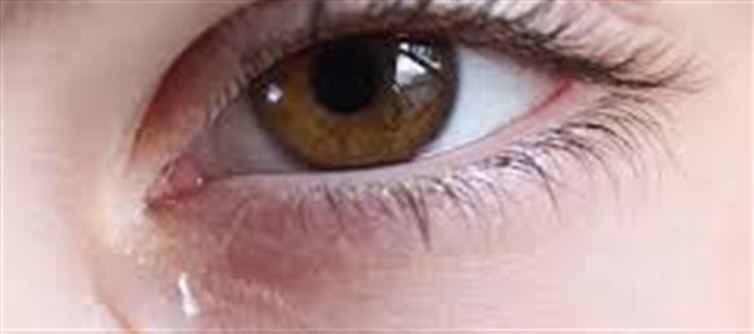
Many people experience watery eyes from time to time and often dismiss it as minor irritation. While occasional tearing can be caused by dust, wind, or allergies, persistent watery eyes could be a sign of underlying eye or health issues that require attention.
🔹 Common Causes of Watery Eyes
1. Allergies
- Pollen, dust, pet dander, or certain chemicals can trigger excessive tearing.
- Accompanied by itchiness, redness, and swelling of the eyes.
- Over-the-counter antihistamine drops or oral medications can help, but consult an eye specialist for chronic cases.
2. Dry Eye Syndrome
- Ironically, dryness can cause watery eyes as the eyes produce excess tears to compensate for irritation.
- Symptoms include a burning sensation, blurred vision, and a feeling of grittiness.
- Lubricating eye drops and lifestyle adjustments can relieve discomfort.
3. Blocked Tear Ducts
- Tear ducts can get clogged, leading to tears overflowing onto the cheeks.
- Common in infants and older adults.
- Persistent cases may require minor surgical procedures to clear the ducts.
4. Eye Infections or Inflammation
- Conditions like conjunctivitis (pink eye) or blepharitis (eyelid inflammation) can cause watery eyes.
- Symptoms may include redness, discharge, and sensitivity to light.
- Prompt medical attention is important to prevent complications.
5. Environmental Factors Exposure to smoke, wind, bright sunlight, or air conditioning can irritate eyes, causing tearing.
- Protective eyewear and avoiding prolonged exposure can help.
6. Medical Conditions Chronic watery eyes may sometimes indicate more serious health issues, such as thyroid eye disease or autoimmune disorders.
- Persistent symptoms should not be ignored.
🔹 When to See a Doctor
Seek professional evaluation if you notice:
- Continuous tearing for several days without obvious cause.
- Pain, swelling, or redness that doesn’t improve.
- Changes in vision, sensitivity to light, or discharge from the eyes.
- Watery eyes accompanied by other unexplained symptoms.
🔹 Expert Tips for Eye Care
- Wash hands before touching your eyes to prevent infection.
- Use clean, preservative-free eye drops for irritation relief.
- Avoid rubbing your eyes, which can worsen inflammation.
- Maintain good indoor air quality and reduce exposure to allergens.
- Regular eye check-ups can detect underlying issues early.
✅ Final Word
Watery eyes are often more than just a minor annoyance. While irritation and allergies are common culprits, persistent tearing may signal underlying eye or systemic health conditions. Paying attention to symptoms, practicing good eye hygiene, and consulting an eye specialist when needed can help protect your vision and overall eye health.
Disclaimer:
The views and opinions expressed in this article are those of the author and do not necessarily reflect the official policy or position of any agency, organization, employer, or company. All information provided is for general informational purposes only. While every effort has been made to ensure accuracy, we make no representations or warranties of any kind, express or implied, about the completeness, reliability, or suitability of the information contained herein. Readers are advised to verify facts and seek professional advice where necessary. Any reliance placed on such information is strictly at the reader’s own risk.
.jpg)




 click and follow Indiaherald WhatsApp channel
click and follow Indiaherald WhatsApp channel